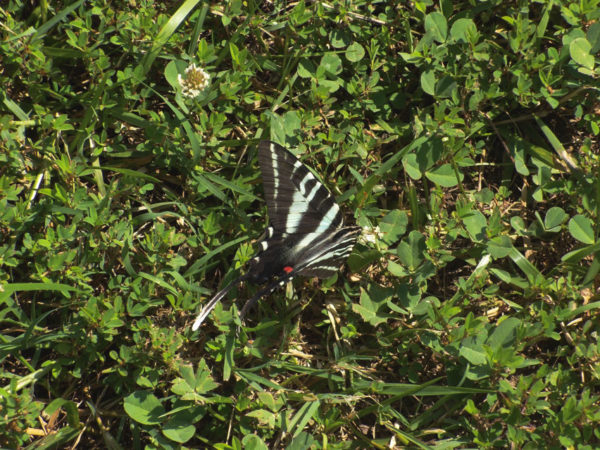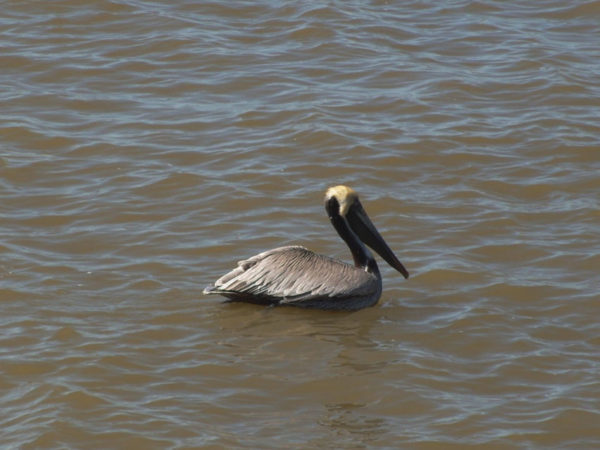The Project WILD program is an interdisciplinary conservation and environmental education curriculum and materials that focus on wildlife and conservation for all educators — formal and non-formal, pre-K through high school. The Virginia Department of Wildlife Resources (DWR) provides in-service training for educators in support of the wildlife related Science Standards of Learning as well as essential skills in math and language arts. Project WILD provides educators with the tools, training and resources needed to engage students in active, hands-on learning about wildlife. The activities in the guides aid in developing students’ critical thinking, problem — solving and decision making skills through the use of cross curricular lessons that can be used individually, sequentially or in units.
Why Project Wild?

Insects are all around us and can be found in a wide variety of colors, shapes and sizes. Project WILD activity “Insect Inspection”
Every day, natural and wild places are rapidly diminishing and so is wildlife. Project WILD explores how people can understand wildlife and habitat and make decisions that use natural resources wisely.
Project WILD emphasizes wildlife’s ecological and intrinsic value. Project WILD also addresses the need for human beings to be responsible citizens of our planet.
Virginia DGIF provides the Project WILD curriculum guides through hands-on workshops for educators. With an unbiased approach to basic wildlife concepts management practices.
Project WILD Curriculum Guides have been recently updated and:
- Includes helpful, scientific background information with all activities,
- Includes both field investigations and STEM activities,
- Incorporates powerful techniques and methods for teaching problem solving and decision-making skills,
- Teaches young people how to think about wildlife, not what to think and
- Is kid-tested and teacher-approved!
How To Get the Materials

Bird beaks are adapted to find and eat different types of food. How does a Pelican capture its food? Project WILD Activity
Project WILD curriculum guides are available through teacher in-service workshops. The materials and workshops are offered free of charge across the Commonwealth. Please fill out the Project WILD Workshop Interest Form to be placed on our workshop waiting list. Most of the workshops in Virginia are offered on in-service days and hosted by local school systems.
Choose a Guide and Workshop That is Right For You
- Project WILD K-12 Curriculum and Activity Guide (K–12) features activities emphasizing terrestrial species and their habitats. A wide range of ecological concepts are covered including: food webs or energy flow, adaptations, interdependence, carrying capacity and habitats. Workshops are six hours.
- Aquatic WILD Curriculum and Activity Guide (K–12) provides a look at aquatic wildlife and their ecosystems. This guide supports the watershed and Chesapeake Bay related SOLs as well as the wildlife concepts mentioned above. Workshops are four hours.
- Science and Civics – Sustaining Wildlife (grades 9–12) contains both government/civics activities and science activities. It is designed to serve as a guide for involving students in environmental action projects aimed at benefiting the local wildlife found in a community. Workshops are four hours.
- Flying WILD: Celebrating Birds features interdisciplinary hands-on classroom activities along with information for engaging students in a school wide bird festival. Key concepts include migration, adaptation, the importance of habitat, and bird conservation efforts. Workshops are four hours.
- Growing Up WILD — Exploring Nature with Young Children: A curriculum guide for educators of 3–7 year olds that builds on children’s sense of wonder about nature and invites them to explore wildlife and the world around them. Growing Up WILD provides an early foundation for developing positive impressions about nature and lifelong social and academic skills. Workshops are three–four hours.
Project WILD Correlations for:
- Environmental Science Course Guidelines
- Flying WILD and Science Concepts
- Growing Up WILD
- Mathematics Skills
- Science Standards of Learning (2010)
- Science and Civics Standards of Learning
- Correlation of Project WILD Activities with Schoolyard Features
- Project WILD and Aquatic WILD Guides and the 2018 Virginia Standards of Learning for Science
- Science Standards of Learning and Project WILD Activities (Grades K–6)
More Information:
For information about Virginia’s Project WILD Workshops or other wildlife education materials, contact: Courtney Hallacher, Project WILD Coordinator, at [email protected] or at 804-389-4424.
Visit the National Project WILD website
Project WILD is an international wildlife education program of the Association of Fish and Wildlife Agencies


